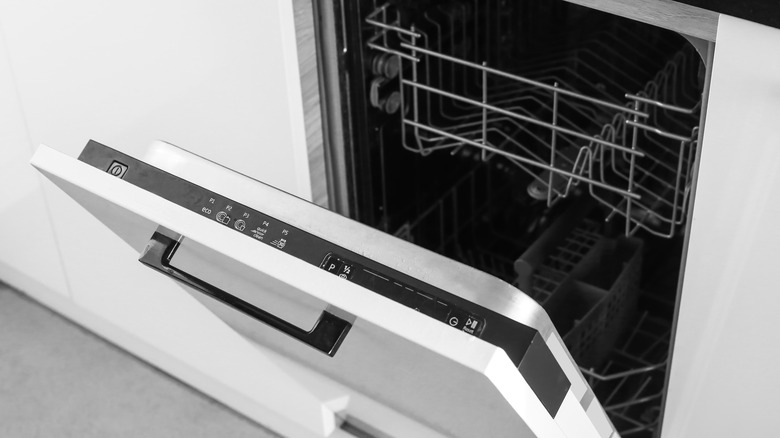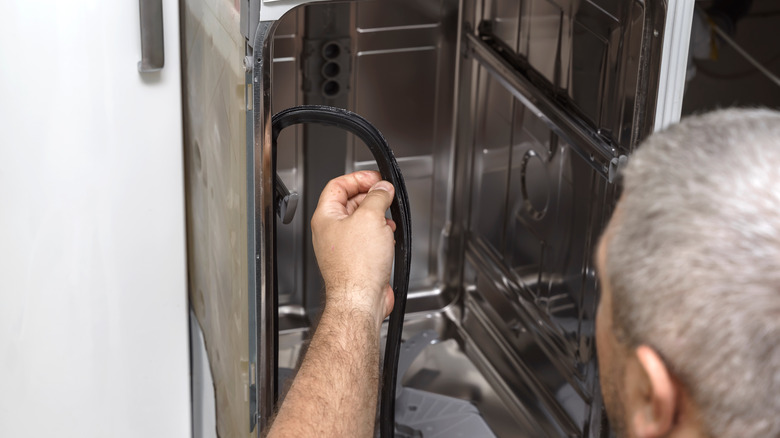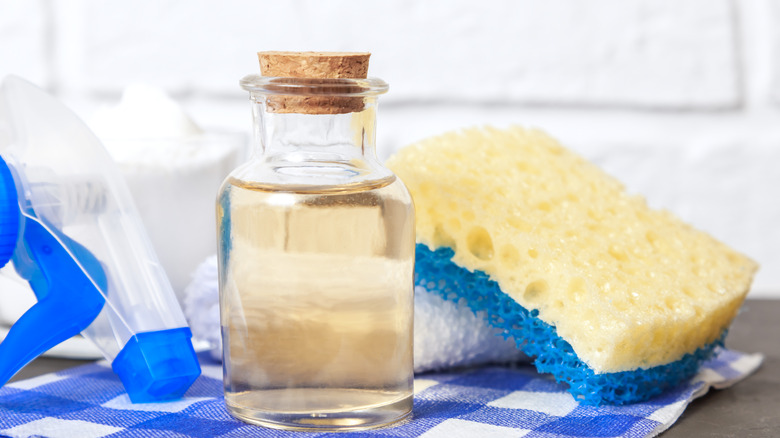You Should Really Clean The Inside Of Your Dishwasher Door
The importance of cleaning your kitchen can't be overstated. This is where you prepare your food, after all; you're going to want to make sure every surface is disinfected and free of harmful bacteria and toxic substances. But while we know about degreasing and disinfecting, one thing we often forget is that appliances built for cleaning need to themselves get cleaned.
It's sort of a "who watches the watchman" situation, and failing to clean the cleaning appliances themselves — the sink, the garbage disposal, etc. — can lead to them not being able to do their jobs. And one of the most crucial appliances to clean is one of your biggest: the dishwasher.
Really, the whole dishwasher needs a cleaning from time to time, but the part of it that especially needs extra attention is the door. The problem specifically has to do with the rubber seal, which can be a breeding ground for stuff you absolutely do not want anywhere near your lungs.
Dishwasher doors that haven't been cleaned can contain toxic substances
You might think, "Oh, the dishwasher just runs water and detergent through itself, so it must be fully self-cleaning." This, however, is a huge mistake — and one that can have significant health consequences if you don't rectify it. Dishwashers can be breeding grounds for fungi and mold, and nowhere is more fertile ground for them than the door itself, thanks to its rubber seal.
The crevices around the seal, combined with the generally moist environment, make a great place for nasty stuff to hide. A 2011 study published in the journal Fungal Biology found that 60% of dishwashers examined contained some sort of fungi around the rubber seal, while 56% were home to a type of black yeast known as exophiala.
This is extremely bad, as exophiala species are often noted for how dangerous they can be to humans. They like to hide in woodwind instruments that aren't cleaned enough and cause all sorts of respiratory issues through acute pulmonary disease. Basically, they're something you do not want to be breathing in.
Cleaning the dishwasher door requires vinegar and some effort
So, how do you deal with this problem? Happily, dishwashers aren't nearly as difficult to clean as you might expect. To clean the entire dishwasher, just use a spray bottle to coat the interior (both the walls and the rungs themselves) in an equal parts mixture of white vinegar and water, then run the machine on its hottest setting without any sort of detergent.
The door takes a little more effort, but not much. Use white vinegar again and spray down the rubber seal, then scrub it with a small kitchen brush. Interestingly, vinegar is actually better than bleach here for its tendency to get into more porous surfaces, not to mention the fact it's non-toxic. (Also, don't ever combine the two, because that's how you get chlorine gas.)
It may be a pain to take the extra time to clean your dishwasher, but the end result is worth it — nobody wants to breathe in black mold. And if cleaning your dishwasher door from time to time can keep you out of the hospital, it's definitely the way to go.


